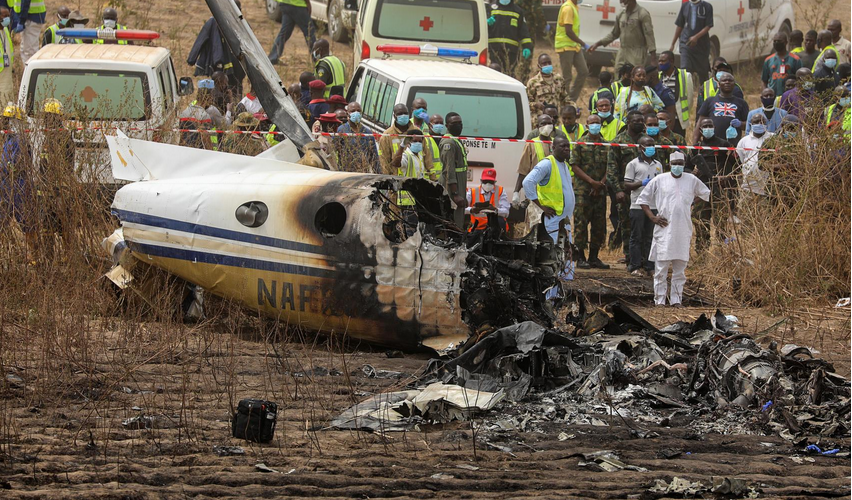

Since 1956, Nigeria aviation industry has experienced major air crashes, mostly involving passenger planes.
These include, Sosoliso, Dana, Aviation Development Company, ADC, EAS, Bellview and Okada Airline crashes among others.
On September, 27th 1992, the military system in Nigeria recorded its first major air mishap when the Nigeria force inaf jet c.130 crashed in Ejigbo, near Lagos after departing the Muritala Muhammed international airport killing around two hundred military personnel.
Again on September 17th 2006, twelve Nigerian military personnel, mostly high ranking officers were killed in a plane crash in Benue state.
To reduce the trend, former president Olusegun Obasanjo embarked on recapitalisation policy of the airlines while many aircrafts found to constitute threat to the public were grounded.
Frequent aircraft mishaps had thrown the entire country into periods of unpalatable mourning, wailing and gnashing of teeth whenever they occurred.
There was a moment of recipe, but it was not yet Uhuru from air accidents as the nation’s air space was poised to record more calamities.
The recent air tragedies in the country were recorded within a space of four months and they involved three Nigerian air force jet leading to death of military personnel.
On 22nd February 2021, a Nigeria air force jet, king air 350, crashed near the Nnamdi Azikwe international airport killing seven officers including the crew members.
Also in April, a Nigerian Air Force, NAF, alpha jet on combat duty in the Boko Haram ravaged Borno state in the north east of Nigeria disappeared and has been without trace since two crew members were said to be on board and are still missing.
The latest is the 21th, May NAF beech craft king air b 350 aircraft that killed eleven military personnel including the Chief of Army staff, COAS, General Ibrahim Attahiru who was on official trip to Kaduna state.
The plane crash landed near Kaduna airport due to bad weather as the initial report on the tragedy indicated.
The crash was a fatal blow to the nation especially the fight against terrorism, banditry and kidnapping that have been on the prowl for sometimes.
It is heartwarming that the experts at the Aviation Investigation Bureau, AIB, have taken over the investigation into the crash with a view to ascertaining the cause or causes of the incident.
However, for a nation that is prone to air mishaps, aviation authorities must make sure that Nigeria does not become a dumping ground for all sorts of outdated aircrafts that obviously pose dangers to the safety of air travel.
It is important for the country to improve on its disaster preparedness, coordination and management at the major international airports for a safer airspace.
The adhoc and standing committees carrying out oversight functions in the aviation industry should intensify their supervision, especially in the area of timely release of budgetary allocation.
There is the urgent need for the authorities of the Nigerian military to immediately overhaul its fleet with a view to grounding all obsolete and out of form aircraft that could do more havoc on its personnel.
It must raise the bar on the issue of standard, compliance and safety of all aircrafts in its fleet and take regular maintenance more seriously.
This will go a long way to ensuring a safe sky for jets in order to avoid crashes and untimely death.
Tayo Sanni